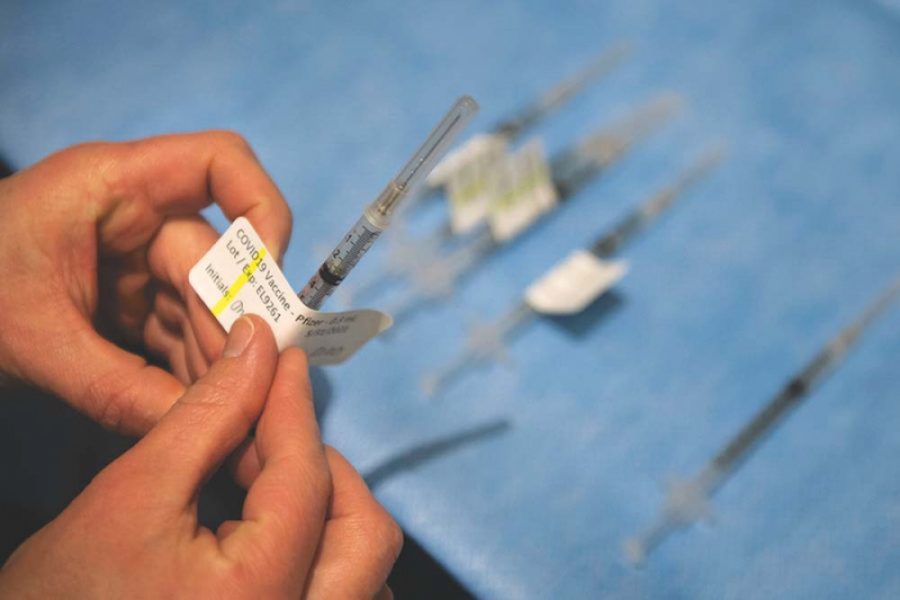MDHHS recommends Pfizer vaccine booster
Oct 4, 2021
The Michigan Department of Health and Human Services (MDHHS) is recommending a third, “booster” dose of the Pfizer COVID-19 vaccine to those 65 years of age and older, as well as anyone 18 and older living in long-term care facilities who completed the initial vaccine series six months prior.
Those 50 through 64 years of age with certain underlying medical conditions should also receive the shot. Those 18 and older working in settings where their COVID-19 exposure risk is increased and those 18 through 49 who have certain underlying health conditions may also get the booster. High-risk jobs include healthcare, first response, education, postal and public transit, corrections, grocery/restaurant, and agricultural and manufacturing.
Only those who received their first and second Pfizer shot six months prior are eligible for the booster. Those who received Moderna or J&J are not, Lynn Sutfin, Public Information Officer at MDHHS said.
“You can get the booster wherever you received your first two doses,” Sutfin said. “It is free, but only the groups that the CDC recommended the booster dose for are able to receive it.”
Sutfin said she expects more information on a possible booster for those who received the Moderna or J&J vaccine to be sent out in the upcoming weeks. Sutfin said that while a vaccine card is required, no proof of employment or of any underlying medical conditions are necessary when getting the shot. She also differentiated between what the CDC calls the “COVID-19 booster” and a third dose.
“Those who are moderately or severely immunocompromised can get a third dose 28 days after their second dose of Moderna and Pfizer,” Sutfin said.
This third dose is necessary for some because the first two doses do not build up enough immunity in the bodies of those at-risk to keep them protected from the virus. The difference in whether a person is immunocompromised or has underlying health/medical conditions depends on the condition they have. A person who has an underlying medical condition may suffer from cancer, kidney disease, chronic lung disease, down syndrome or diabetes. Someone who is immunocompromised may be receiving active cancer treatment, recovering from an organ transplant or stem cell transplant, may have advanced HIV or be on high-dosed steroid medications.
Sutfin said that a mild reaction similar to any the person experienced during their first two doses is possible. Kristi Cooper, GVSU Senior Affiliate Nursing Faculty and COVID Assessment Team Nurse, explained that the booster, third dose, and first two doses are the same vaccination; they work to continue building immunity to the virus.
“I am working on scheduling more vaccine clinics in partnership with the Ottawa County Public Health Department in October for the first, second or third doses (boosters) of the Pfizer vaccine,” Cooper said.
Information on these clinics will be posted on the Lakers Together website.
As long as a person meets the CDC criteria listed to be eligible for the booster, they do not have to wait for a GVSU vaccine clinic to open and can get their booster or third dose at any time. To find an off-campus location to receive a first, second or booster shot, visit Vaccines.gov. For more information about the booster and criteria, visit publichealthcollaborative.org.























